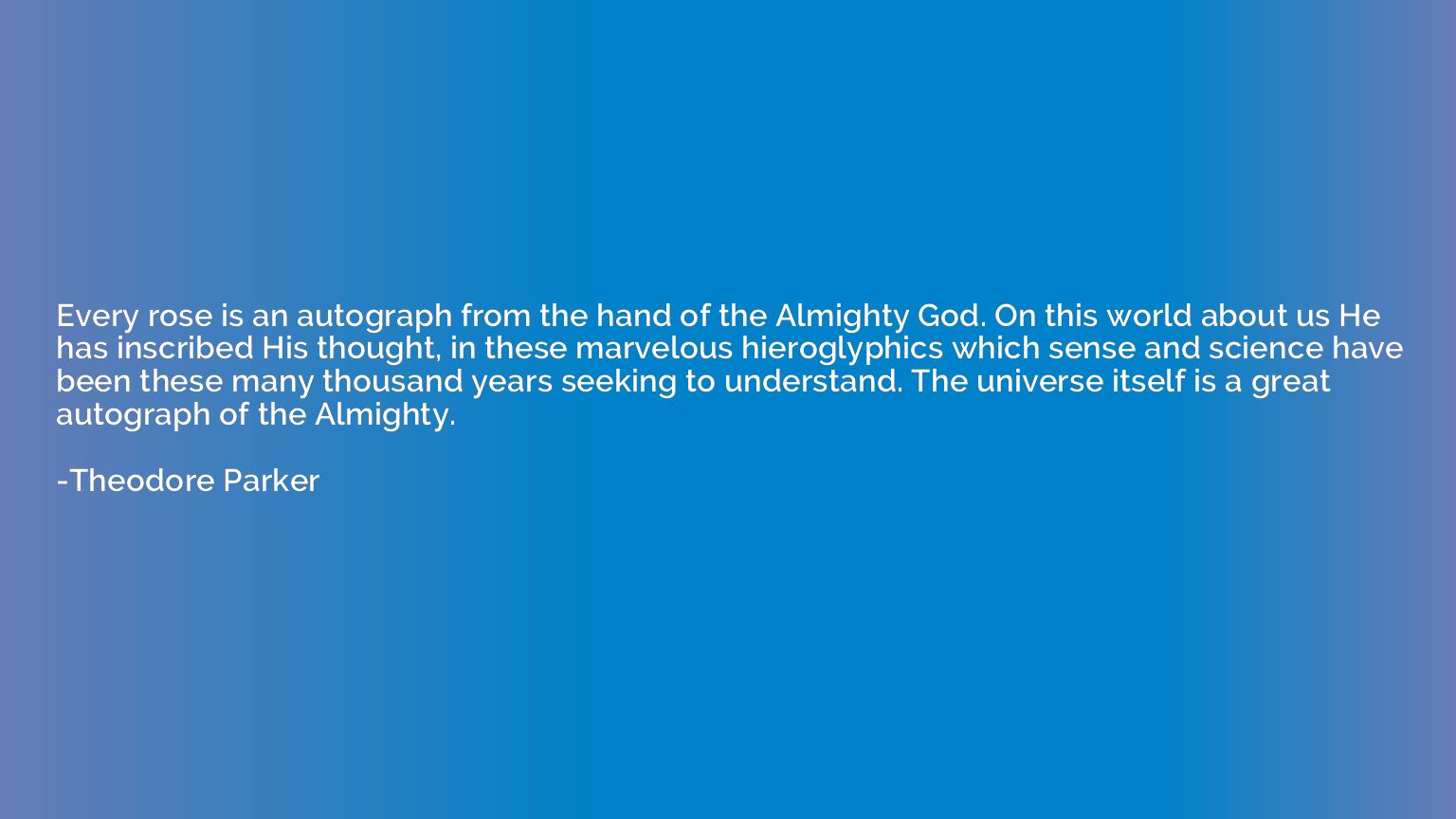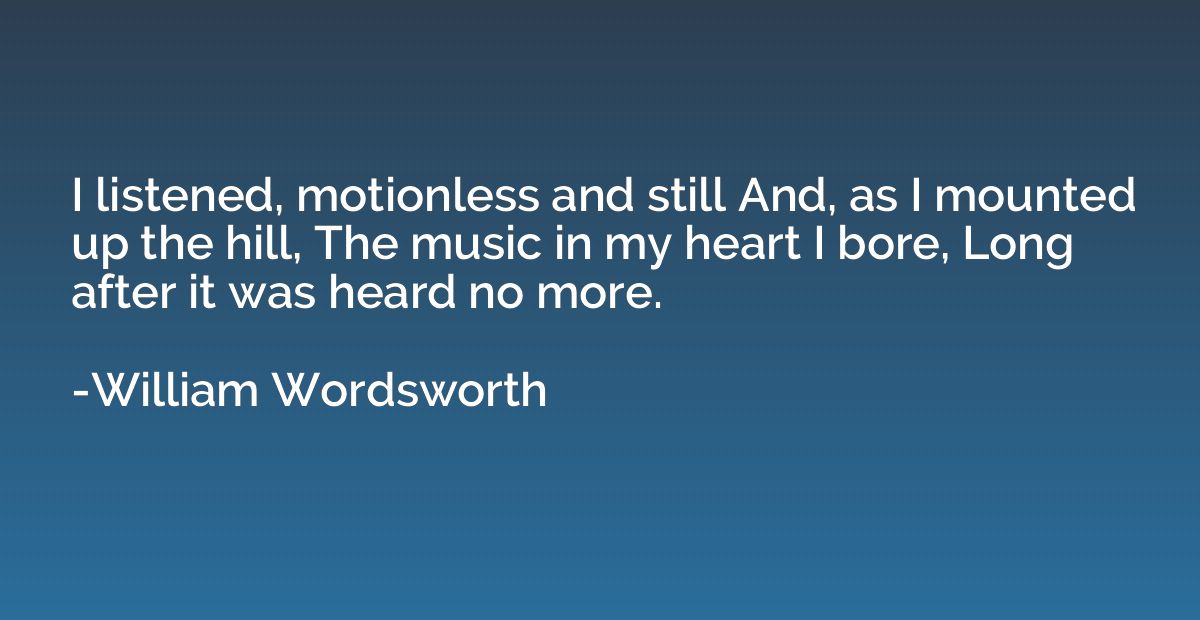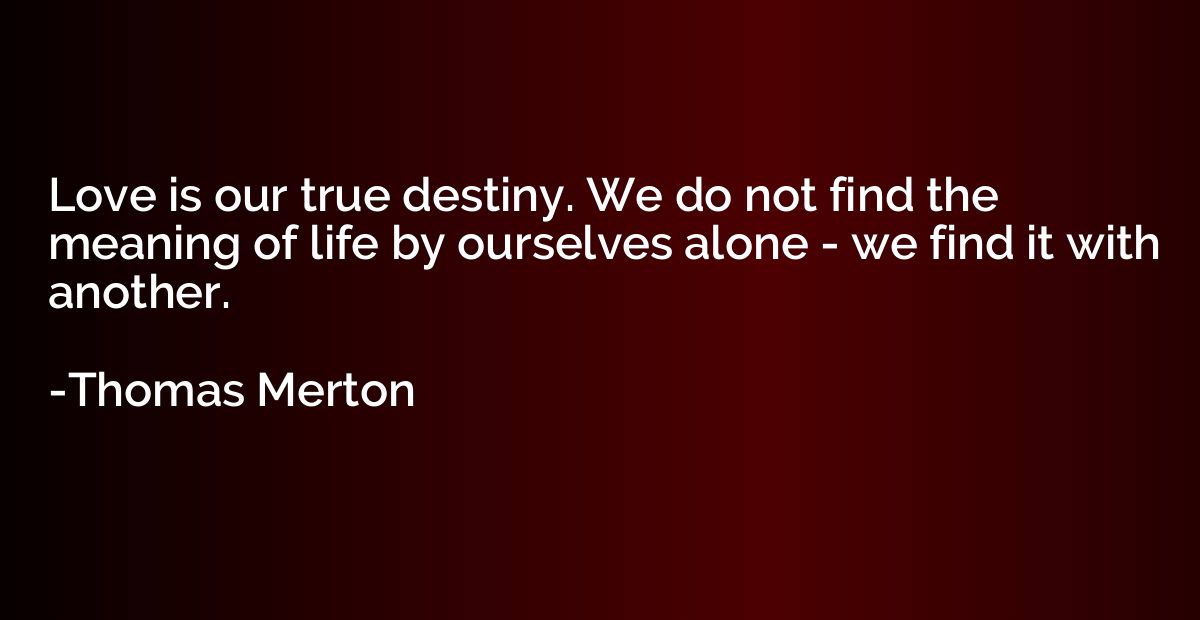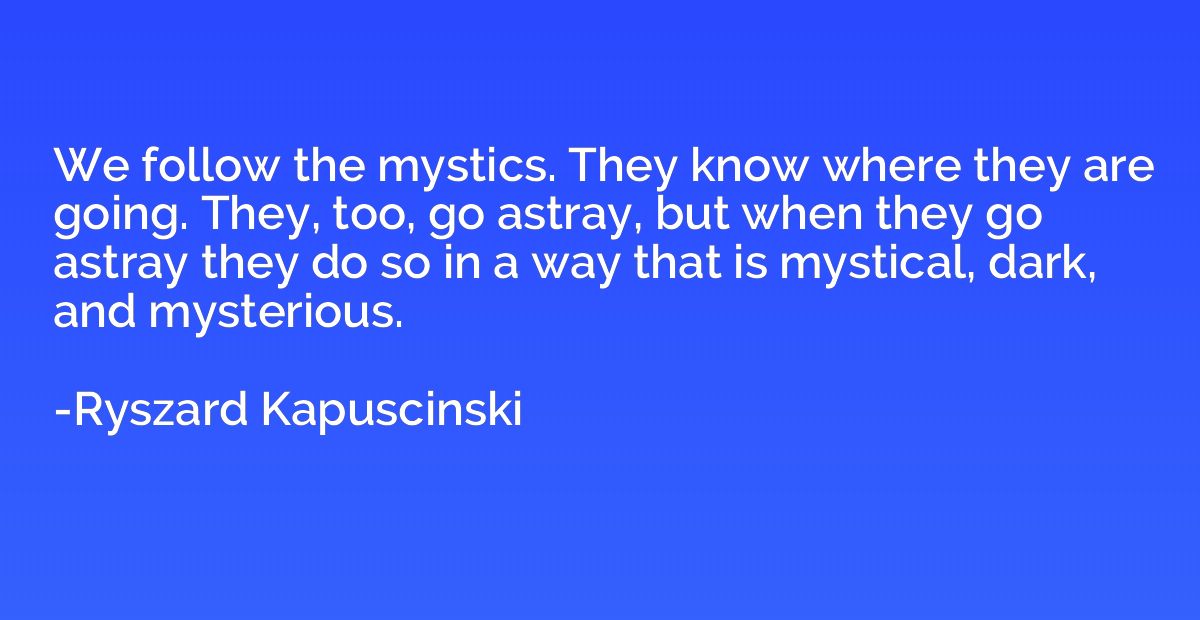Quote by Theodore Parker
Every rose is an autograph from the hand of the Almighty God. On this world about us He has inscribed His thought, in these marvelous hieroglyphics which sense and science have been these many thousand years seeking to understand. The universe itself is a great autograph of the Almighty.

Summary
This quote highlights the belief that every rose is a signature from God and serves as a symbol of His creative power. It suggests that the beauty and intricacy found in nature, including the details of a rose, are manifestations of divine craftsmanship and intentionality. Furthermore, the quote asserts that the entire universe is a testament to God's existence and serves as a captivating autograph, which humans have been trying to comprehend through the exploration of knowledge and understanding.














